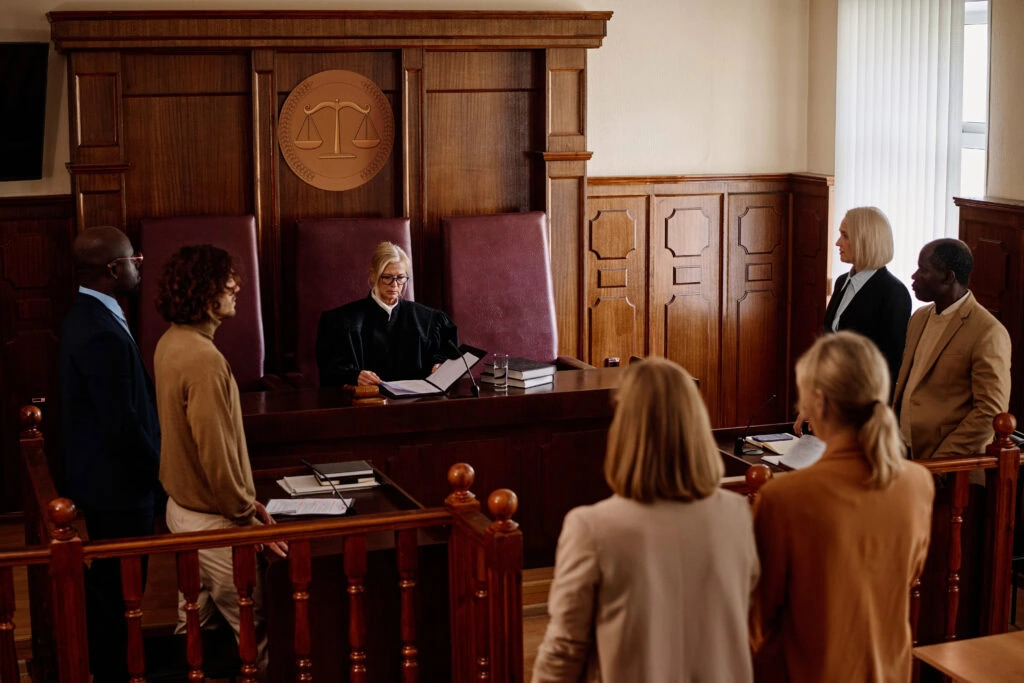Burglary charges under the California Penal Code 459 PC are serious and can significantly impact your life. Did you know that burglary, in its most severe form, is punishable by up to six years in prison?
This article will navigate you through everything you need to know about burglary laws, from understanding what constitutes a burglary to examining defenses against these charges.
Interested? Let’s unravel this complex legal issue together!
Understanding the Definition and Types of Burglary
Burglary, defined by California Penal Code Section 459 PC, involves entering a structure or locked vehicle with the intent to commit theft, and it can be classified as first-degree burglary (residential) or second-degree burglary (non-residential).
First-degree burglary (residential burglary)
Under California Penal Code 459 PC, a first-degree burglary occurs when an individual enters a residential structure without the owner’s permission to commit a crime.
This type of burglary is always considered a felony in California due to its seriousness. The inhabitation status of the dwelling plays a key role; for it to be classified as first-degree burglary, the residential building must be inhabited irrespective of whether or not occupants are present at the time.
While this encompasses various property crimes like robbery, theft, or illegal entry, their severity escalates significantly due to being committed within someone’s residence. As such, residential burglary attracts stern legal penalties, including classification as a “strike offense,” and could potentially lead to up to six-year prison sentences.
Second-degree burglary
Under California’s Penal Code 459 PC, second-degree burglary relates to breaking commercial structures with illicit intent. This can include any non-residential structure such as stores or businesses.
The term “wobbler” is mainly associated with this misdemeanor or felony offense, indicating that it can be charged depending on the crime’s specific circumstances.
Second-degree burglary occurs when an individual unlawfully gains access to a commercial property for criminal purposes like theft or other felonies. A crucial element in these cases is establishing ‘criminal intent’ during unlawful entry.
Despite being less severe than first-degree (residential) burglary, penalties for second-degree burglary can still carry significant repercussions if convicted.
Penalties for Burglary in California
Burglary in California is a felony offense, and the penalties can be severe. First-degree burglary, which includes residential burglary, carries a maximum prison sentence of six years.
Additionally, there are substantial fines and the potential for a “strike” on the offender’s criminal record. Second-degree burglary is also punishable by up to six years in prison.
First-degree burglary penalties
California Penal Code 459 categorizes first-degree burglary, often referred to as residential burglary, as a severe felony. An individual found guilty of this offense faces stiff penalties, including imprisonment for two, four, or six years in state prison.
In addition to the custodial sentence, an offender may be ordered to pay hefty fines of up to $10,000. This reflects the seriousness with which California law treats residential burglary offenses.
Importantly, the structure doesn’t need to be occupied at the time of the crime for it to qualify as first-degree burglary – merely entering an inhabited building with the intent of theft or committing a felony is sufficient.
The consequences extend beyond jail terms and fines; repercussions such as a tainted reputation make life significantly more challenging post-conviction since it’s considered a serious offense under California’s three strikes law.
Second-degree burglary penalties
Second-degree burglary in California carries severe penalties. If convicted, individuals can face a prison sentence ranging from 16 months to three years and a fine of up to $10,000.
This offense is considered a felony and may result in formal felony probation. It’s important to understand that the specific penalty will depend on the circumstances of the case and any prior criminal history.
Overall, second-degree burglary is taken seriously by the law enforcement system in California and can have long-lasting consequences for those involved.
Strategies for Fighting a Burglary Charge
Challenging the intent or lack of evidence in the case can be an effective strategy for fighting a burglary charge.
1. Lack of intent
One strategy to fight a burglary charge in California is to argue a lack of intent. Under California Penal Code 459 PC, the prosecutor must prove beyond a reasonable doubt that the defendant had the specific intent to commit theft or a felony while entering a building.
If the defense can show that there was no intention to commit any crime, it may be possible to challenge the charges successfully. This defense becomes particularly important when insufficient evidence links the defendant’s actions with an intended theft or felony.
By highlighting this lack of intent, individuals accused of burglary can strengthen their case and potentially avoid severe consequences such as jail time and fines.
2. Mistake of fact/claim of right
A crucial legal defense to a burglary charge in California is known as a “mistake of fact” or “claim of right.” This defense argues that if a person genuinely believed, based on an honest mistake, that they had ownership or the right to possess the property, they cannot be found guilty of burglary.
The defense comes into play when there was no intention to commit theft or any other crime while entering a property without permission from the owner. It can be used when someone truly thought they had the legal right to enter or believed they were authorized.
Whether due to a mistake in facts or laws, this bona fide claim of ownership or right of possession can provide a valid defense against a burglary charge under California Penal Code 459 (PC).
Related Offenses to Burglary in California
In addition to burglary, several related offenses in California can carry serious consequences for offenders.
One such offense is theft, which involves unlawfully taking someone else’s property without their consent. Theft can be classified as either petty or grand theft, depending on the value of the stolen items.
Another related offense is entering a locked vehicle with intent to commit theft, commonly known as car burglary. This crime occurs when someone breaks into a locked car to steal something inside.
Theft and car burglary are considered serious offenses under California law and can result in felony charges, imprisonment, fines, and potential “strikes” on an offender’s criminal record.
It is important to understand these related offenses and their potential consequences when discussing burglary in California.
Conclusion: California Penal Code 459 PC
In conclusion, understanding the California Penal Code 459 PC regarding burglary is crucial for residents and business owners. Burglary is a serious offense resulting in significant penalties, including prison time and fines.
By familiarizing ourselves with Penal Code 459 PC, we can understand the consequences of the crime, and what the punishment can be. Contact us today to learn more!










